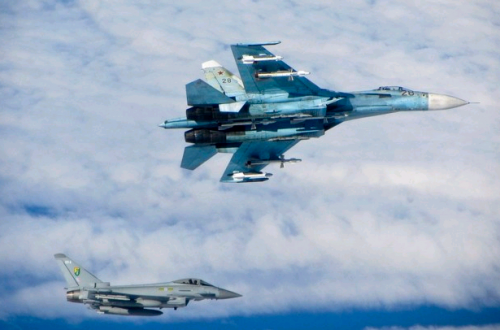This is a cross post by bananabrain from The Spittoon
I must start by declaring an interest here, not only as someone who supports a fair and equitable end to the Arab-Israeli conflict in which Israel’s future is secured and a wider lasting peace in the middle east for all its peoples, but also as someone many of whose ancestors came from Mosul and Kirkuk in Kurdistan. I have met many talented Kurds and they have invariably been the sort of people who i could get along with and do business with; reasonable, rational and sensitive to the realities of history and politics.
For all these reasons, the issue of Kurdistan has been close to my heart for a number of years; it felt very much to me as if it was a pipe-dream, given the geopolitical status quo. the basics are this:
There are something like 40-50 million Kurds, spread over mountainous territory which is probably some of the most geopolitically sensitive in the world: eastern Turkey, northern Syria, Iraq, Iran and a small part of Armenia. Kurds have their own Indo-European language, although their society is highly tribalised and split between Sunni Islam of the Shafi’i school (about 3/5), mainstream Twelver Shi’ism, a number of sects such as Alevis and a couple of ancient indigenous religions, of which the most famous is Yezidism. They are the largest ethnic group without an independent nation.
The Kurds are also oppressed, marginalised and brutalised in Turkey, Iraq and Iran. in Turkey, even the word “Kurd” and their language is banned, Kurds being forcibly described as “mountain Turks”. In Iraq, the Kurdish autonomous area is probably the least of the post-Saddam basket cases – they have plenty of oil and the memory of the atrocities at Halabja give them reason to fear and suspect their southern neighbours. In Iran, repression of all non-Shi’a religion is de rigeur, with a hefty dose of ethnic prejudice.
There has never been an independent Kurdistan in the modern period, largely because of the geopolitics. The Kurds sit on a volatile faultline, between the Turks and the Russians in the Caucasus, between the Turks and the Iranians in Syria and between the Sunni and Shi’a in Iraq. Given the interest of the Russians in maintaining their influence in the area, they would rather maintain the status quo. Given the importance of Turkish influence in the Levant and the 10+m Kurds that live within Turkish borders, any loss of control along that faultline is ruthlessly resisted from Ankara. similarly, in the Iranian attempt to extend the “Shi’a crescent” from the gulf to the Mediterranean, the Assad regime, as is already common knowledge, is a key component of grand strategy. Since the Syrian rebellion, the Kurds have been allowed to assert themselves, which is presumably intended to unsettle the Turks and draw them into the field, as they fear an resurgence of the Marxist PKK, a violent group considered terrorists by the EU and NATO as well as Turkey, but often supported and encouraged by the Assad regime for their own ends as and when it suited them.
The geopolitical balance in the region has long been between Turkey, Iran, Saudi Arabia and Israel. The Saudis have an interest in anything that upsets Iran, as well as anything which undermines a resurgence of the historic primacy of Turkey and much of the funding for the Syrian rebellion is coming out of the gulf. To the extent that the Kurds upset both Turkey and Iran, they will be likely to support an increasingly assertive Kurdish nation. The interesting thing here is the Israelis, who have never been in conflict with the Kurds as opposed to the Iranians and Arabs. However, any support for Kurdish self-determination was overruled by their friendly relations with the Turks, far more powerful and influential and far more worrying to the Arabs and Iranians. However, since the Turkish government began pursuing a more Islamist and anti-Israel line, culminating in serious international incidents from the IHH flotilla to insulting and immature diplomatic behaviour on both sides, many have begun to speculate as to whether Israel can maintain friendly relations with turkey in the long-term. If Turkey is determined to break with Israel, it would be logical for the Israelis to look elsewhere for friends. With Egypt going Islamist and chaos in Syria and Iraq, Kurdistan would be an obvious choice for Israeli support in advance of their interests, with the ability to project power into Syria, Iraq and Iran and as leverage with Turkey.
The international powers are another factor – Turkey has been much cultivated as a potential recruit to the EU, but with the Euro in crisis, the Turks have gone cold on this particular opportunity. they are now looking at extending their power east and south, as the north is blocked by Russia and the Caucasus. In the aftermath of the Iraq war and with jihadism largely a spent force in geopolitical terms, the United States will be less interested in counterbalancing Iran, a regional player at best, if they can rely on the Turks to do so. On the other hand, with the Russians eyeing their southern border, a non-Arab, non-Iranian influence with forbidding, mountainous territory could be ideal for the Americans to garner influence, particularly if they can use the Israelis to that end and have learned the lessons of the last forbidding, mountainous area where they used tribal power to combat Russian influence.
If the Kurds are smart, they will take this opportunity as a chance to change the strategic logic. The last time this kind of strategic realignment was possible was in 1990, when the Turks and the Syrians were part of the anti-Saddam coalition – their price being a free hand for him to deal with the Kurds in the north, for which he needed to be left in place – otherwise, he could have been removed easily enough at the time. It is not hard to conclude that this was not done at the time because it was still thought that Iraq could be maintained as an integral state, rather than the three regions controlled by Sunnis, Shi’as and Kurds that it actually is. The break-up of Iraq in 1990 would have led to calls for an independent Kurdistan and that would have been fatal for the coalition. This is no longer the case – Iraq and Syria are disintegrating, the Iranians are exerting themselves and the Turks are turning away from their former allies and friends. while Turkey and Iran are distracted with Syria and with the Israelis on the outs with Turkey and looking to pressurise the Iranians, now is a golden opportunity. Britain also has strong links with Kurdistan through a vibrant and hard-working Kurdish community, particularly in London; we have made few friends in the middle east since the 1990s – support for an independent Kurdistan would change the balance of power in the middle east and it is hard to see how the righting of a historic injustice could do anything but improve the situation.


